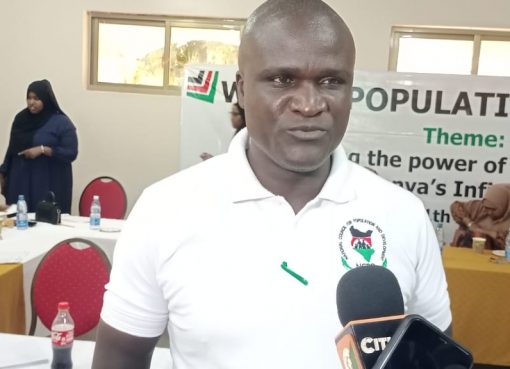Despite potato being the second most important crop in the country after maize, its production remains low at only seven tonnes per hectare against a potential of 40 tonnes on the same portion of land.
The biggest impediment to increased production has been shortage of certified potato seedlings, with most farmers recycling what they have been using.
However, this might soon come to an end, thanks to a project by the Kenya Plant Health Inspectorate Service (KEPHIS) and the National Youth Service (NYS) Tumaini farm in Nyandarua area that has ventured into massive production of certified seeds not only for own consumption but also to benefit other farmers.
The Sh.14.4 million potato seed production unit was launched by the national government through NYS and Prisons departments in February this year.
Tumaini field station NYS command officer, Kennedy Nyakango said that they are using two technologies for potato seed production namely aeroponic and hydroponic systems which have proved successful.
Aeroponics encompasses growing plants in air or mist without using soil, while hydroponics is a method of growing plants without soil, but using mineral nutrient solutions in a water solvent.
The project of this nature, he explained, is the second largest in Africa after Rwanda, adding that in terms of production, Kenya is way ahead and leading in the continent since a plant trait can be able to harvest 66 mean tubers per season, unlike Rwanda which is doing 55 mean tubers.
“Currently we have about 6500 plants in the three green houses and if our calculation is right, we can get 429,000 mean tubers that would be then taken to the field,” Nyakango said.
The command officer noted that once the seeds are ready from January next year, they will be able to preserve them until around March, when planting season would be starting and farmers can then start buying from them.
“ Once we multiply we will be selling in kilos at a cost of Sh.4000 for 50kgs to farmers and a farmer will in turn produce 150 bags compared to the current scenario, where they are producing between 70 and 80 bags,” added Nyakango.
He noted that apart from Nyandarua farmers who are interested in the certified seeds, other counties namely Uasin Gishu, Elgeyo Marakwet, Nakuru and Narok have also shown interest and are ready to buy the seeds from them.
A technologist from KEPHIS, Steven Fwamba Khisa said most potato farms have been affected by diseases and therefore as a plant protection service unit and in order to boost production, they are collaborating with NYS to produce tubers to meet the demand by farmers.
“We produce stem cuttings which are easy to manage and whose technology only takes one week. We ensure that the material we are giving farmers is free from diseases and so we track up the process of production to ensure they are following the right procedure of phytosanitary services, he added.
Through the two technologies, aeroponic and hydroponic, Fwamba said that at the end of the year they will be able to meet the demand of the potato farmers on the amount of seeds they required.
Currently, the common varieties of potatoes grown and consumed in the country, include Shangi, Dutch, Robijn and Unica.
On his part, Daniel Kuria from the Tumaini seed production farm said that from hydroponic system one expects to get between 23 and 35 plants from one plant unlike in aeroponics where one gets 60 to 80 tubers.
At the same time, Erick Wekesa Wanyonyi, a seed Inspector working with KEPHIS said the first stage of seed certification in potato is to sample the soil and do the analysis.
He explained that of concern especially in production of potato is the diseases such as the bacterial wilt, blackleg and Potato Cyst Nematode (PCN) which affects areas that potatoes have been grown for a long period.
“The production of these seeds is being done in a fenced site in order to reduce the risk. If you are doing production in aeroponics and hydroponics, the risks are few compared to those in open fields since they are pathogens that can be carried by soil,” he added.
Meanwhile, the annual demand for potatoes in the national youth service and also the prisons department stands at about 9,000 metric tons.
The inadequate production of potato is thus a national challenge since farmers only produce around 1.7 million tonnes annually and yet the country has a capacity to produce over 6 million tonnes.
This, according to experts is majorly attributed to lack of certified potato seeds, with only about one percent of certified seeds being available to the farmers.
By Wangari Ndirangu



